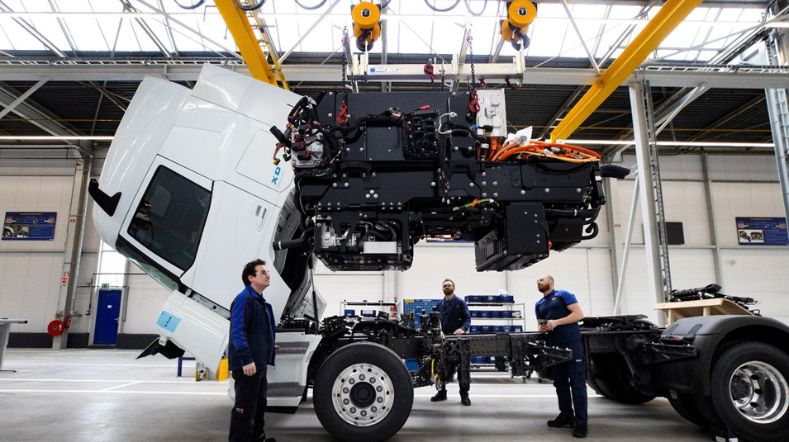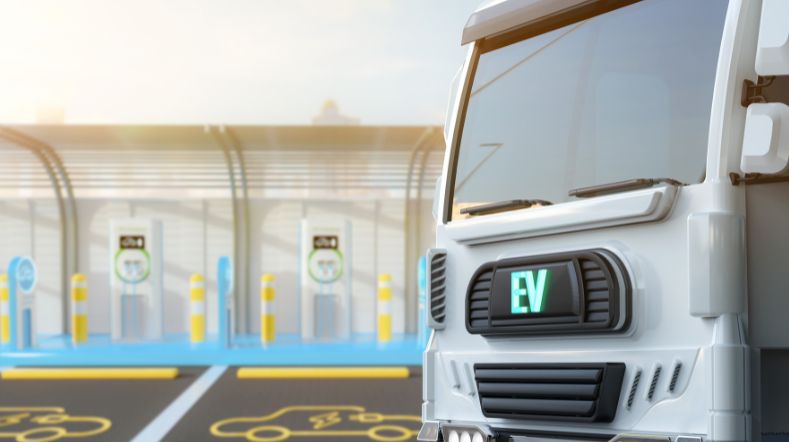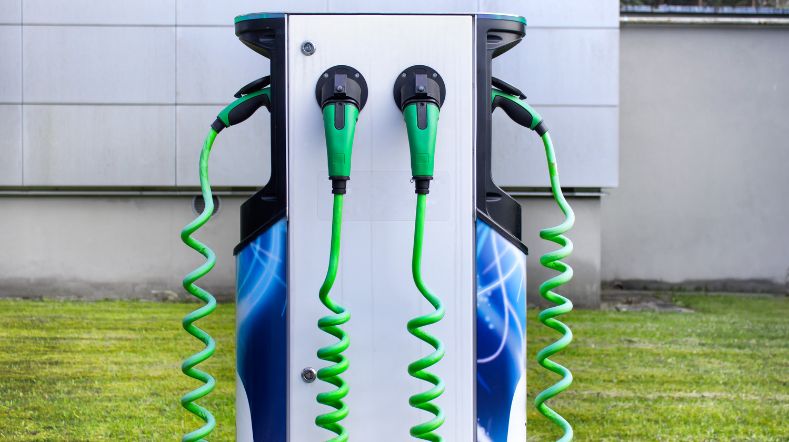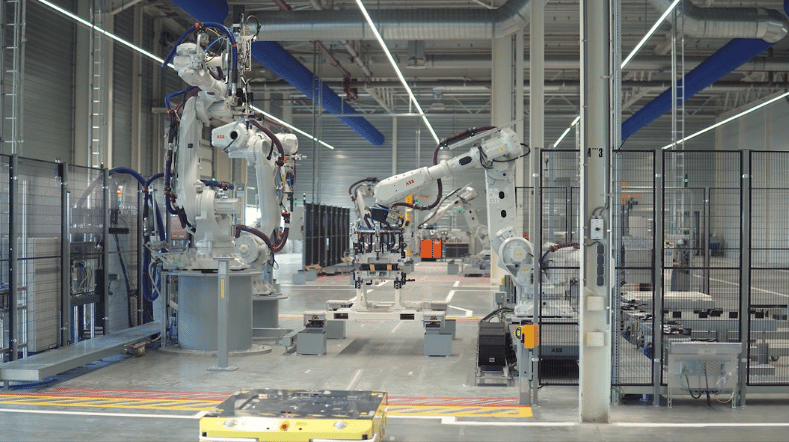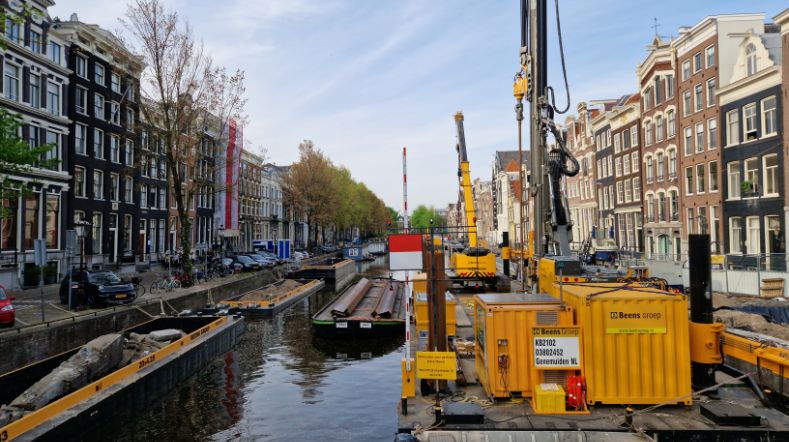Sustainable mobility and logistics
To achieve a cleaner Netherlands and meet the climate goals of the Paris Agreement, we need to reduce greenhouse gas emissions by 80%. This necessitates a significant transformation in our mobility system. Currently, traffic and transportation contribute to over 20% of total CO2 emissions. TNO is actively working toward sustainable mobility, where renewable fuels such as electricity and hydrogen replace fossil fuels. A combination of smart measures and sustainable technologies is already making a positive impact in the short term, while further developments are underway.

Why TNO
TNO serves both industry and government. We collaborate with industry clients to create competitive low-emission technologies. Legislation and policy are crucial factors. Consequently, TNO provides guidance to governments in formulating effective policies. For instance, we measure emissions of harmful substances such as nitrogen oxides (NOx), particulate matter, and CO2 from road traffic, ships, and trains in real-world scenarios. This approach offers valuable insights and supports the implementation of our sustainable innovations in practical contexts.
From in-depth knowledge of how technologies work in the combustion engine, battery and fuel cell, TNO's specialists work with industry partners on the sustainable transport of the future. In addition, TNO has internationally recognised expertise to collect, link, enrich and interpret vehicle data on emissions and behavior. This is valuable information used by many partners to make traffic and transport cleaner and more sustainable.
Researching Sustainable Powertrains
Carriers are continually seeking ways to enhance sustainability. Innovative solutions that reduce emissions from trucks, buses, and ships are essential. In the realm of efficient and sustainable powertrains (such as engines), TNO collaborates with numerous stakeholders. Examples include optimising drive systems for vehicles and (agricultural) construction machinery, as well as developing sustainable alternatives to fossil fuels. By employing advanced technology to measure emissions in daily traffic, TNO can objectively assess whether new innovations and implemented measures significantly contribute to sustainability goals
Making the Vehicle Fleet Cleaner and More Fuel Efficient
To mitigate the impact of traffic and transportation on our environment, TNO prioritises enhancing vehicle cleanliness and fuel efficiency. We conduct thorough emission measurements on both vehicles and vessels, providing valuable insights. Additionally, we offer guidance to policymakers from governments, cities, and industry, helping them implement effective measures for a cleaner living environment. Our research focuses on emissions and energy consumption, ensuring sustainable actions for today and tomorrow.
Powertrain Performance Assessment Centre
The programme lines outlined above are supported by a fantastic development facility at the Automotive Campus in Helmond. Here, new fuels can be put to use in the engines and fuel cells that are under development. We also have access to an extensive facility for conducting battery research.
This includes a unique Altitude Climate Chamber where the performance and emissions of a complete vehicle can be examined under extreme conditions. We are talking here about extreme temperatures below and above zero, for example, or driving in the mountains 4,000 metres above sea level.
Five programme lines
The challenge for greenhouse gas reduction lies mainly in urban and long-distance freight transport. Within the current strategic programme of the HTSM Automotive Roadmap 2020-2030, we provide solutions for the design, deployment and operation of clean vehicle propulsion systems. In this programme, we work on solutions that will facilitate the transition from the use of fossil fuels to sustainable fuels for long-distance and heavy transport, and to electrical energy for regional and urban transport. In addition to significant carbon reductions, these solutions contribute to improvements in local air quality and compliance with noise requirements.
One important development that will make internal engines more sustainable is to run them directly on hydrogen, rather than fossil fuels. This will have a huge impact on carbon emissions, which will be reduced by over 99%. We are researching the mono-fuel and dual-fuel variants. Advantages of this technology include rapid market availability through the leveraging of existing production and service lines, low costs, insensitivity to hydrogen purity, and finally, geographical independence in terms of the materials needed.
Research into the lifespan and lifespan extension of batteries is of great importance because the battery is often the most expensive element in an electrified system. We would like to know how good a battery remains after a certain usage time ('State-of-Health'), and how long it can still be used in the same or different application ('Remaining-Useful-Life').
We draw on our knowledge of batteries from detailed models to extend the lifespan of batteries. On the one hand in the direct control of the battery (for example by influencing charging profiles) and on the other hand by integrating this knowledge with fleet management tools. All this to minimise the total costs over the entire lifespan. Additionally, we apply this expertise to establish a Battery Passport, as mandated by European regulations, and generate the necessary input data.
Energy management in a vehicle is gaining in importance, especially when it comes to hybrid vehicles. Hybrid vehicles often combine batteries with fuel cells or an internal combustion engine. The size of these components has to be determined during the design phase and depends on the task that the vehicle or vessel will be used for. This question is particularly relevant in the case of non-road applications, such as a tractor or construction machine, for example. In addition, once a vehicle is actually being used, real-time decisions need to be made about when to charge the battery or when the battery should kick in to carry out the task. TNO has a solution to answer these questions.
The fuel cell is an interesting form of powertrain, because of the high degree of efficiency with which it converts hydrogen into electricity. Fuel cells are also silent, of course, and have no emissions. At TNO, we are researching ways to extend the life of fuel cells, which is important given their currently high purchase price. We are conducting this research in relation to the existing PEM technology, but are also now actively involved in designing a control platform for a new technology called SOFC.
Besides hydrogen, there are also other fuels that can be generated efficiently from renewable resources. Take methanol, DME or ammonia, for example. The knowledge TNO has amassed in relation to internal combustion engines over recent decades can be put to excellent use here to make sure that both new and existing engines can run very efficiently on these fuels. At present, we expect this technology to be applied most widely within the maritime sector, where there is a great deal of interest in the use of methanol. We are researching how dual-fuel engines could be designed that run on both methanol and diesel.
Our latest developments
TNO research on powertrains
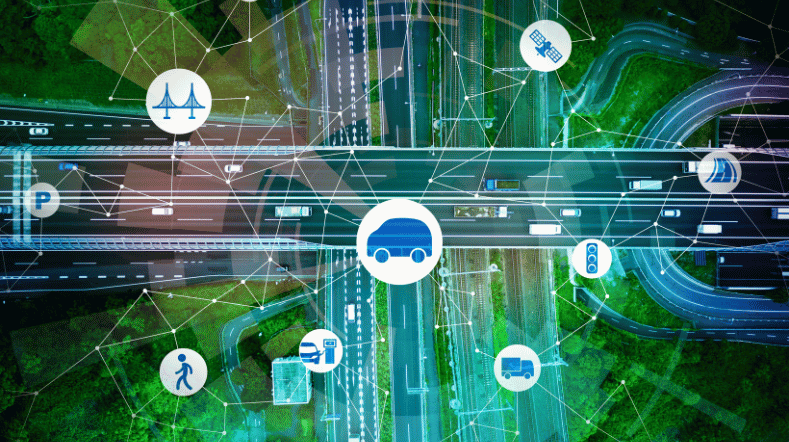

Hydrogen engines
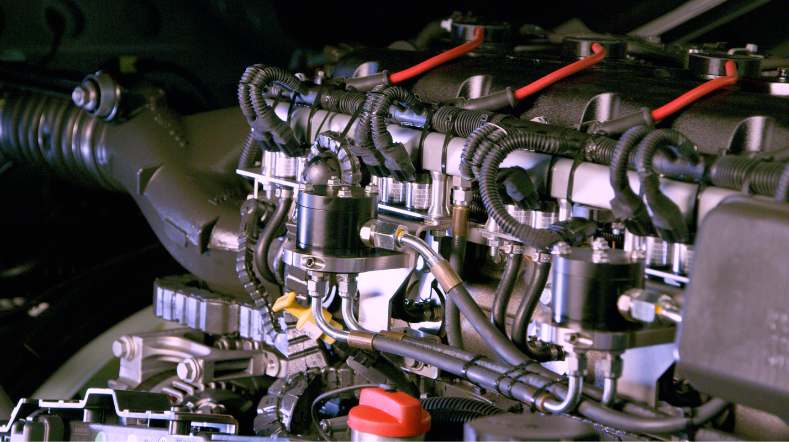

Practical emission measurements


Energy management
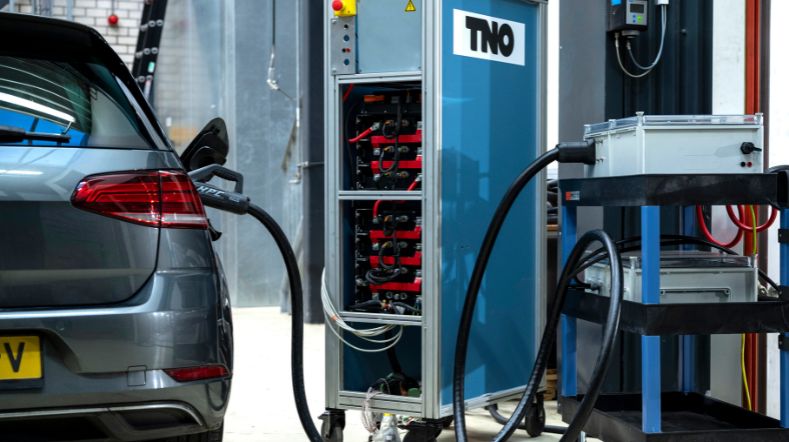

Sustainable logistics


